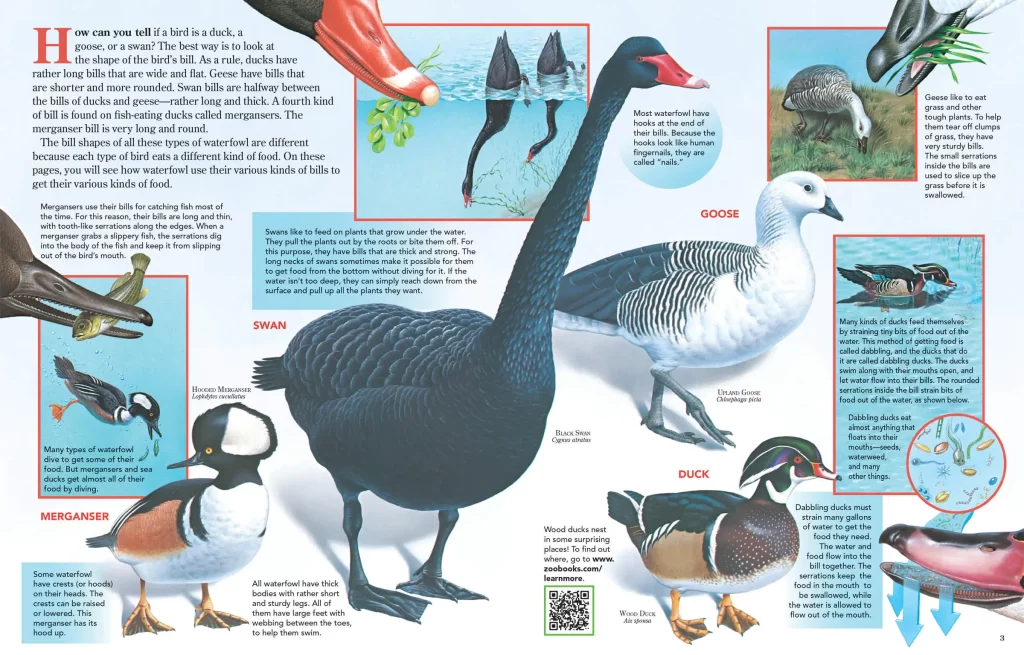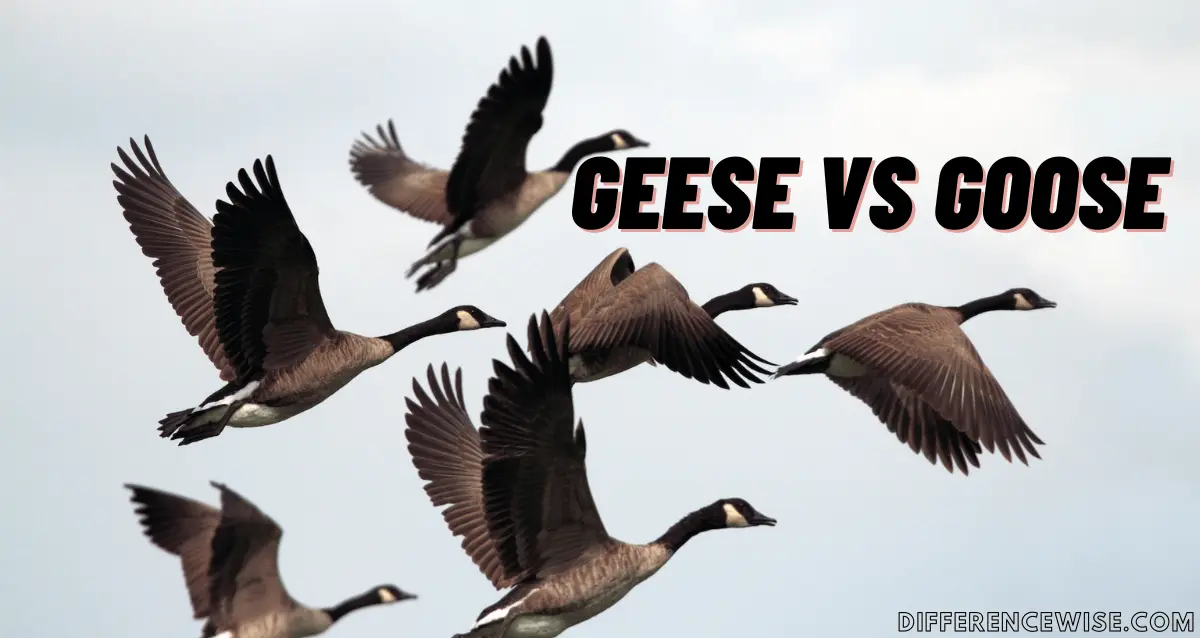Many of us including some writers get confused about the correct word gooses or geese when talking about more than one goose. To clear the confusion the correct verbal word is geese. This change from “oose” to “eese” is an interesting thing called vowel mutation or umlaut. Usually, it happens when the sound of a vowel in a word changes because of the sounds around it.
In this guide, we’ll help you understand when to use “gooses” and when to use “geese” in your writing, so you don’t get mixed up. You can also learn about the plural and singular geese, along with examples. This article is your chance to learn the nitty-gritty details of this word including the origin and pronunciation. Let’s get started.

Which is Correct: Geese or Gooses?
English has never been an easy language it often left speakers unanswerable even sometimes the locals. This case is related to the mystery of Geese and Goose. It is because most words form their plurals by simply adding an “s” or “es” at the end. For example, “cat” becomes “cats” and “box” becomes “boxes”. However, “goose” is an exception to this rule.
The correct plural form of “goose” is “geese”, not “gooses”.
It happens under a linguistic phenomenon known as ablaut reduplication. In this process, a vowel in the word changes to form the plural. Other examples of this phenomenon include “man” to “men”, “tooth” to “teeth”, and “foot” to “feet”.
What’s the plural of “goose”?
The word “goose” is used when referring to a single bird of this type. For example:
- Look at that goose swimming in the lake. It’s beautiful!
When we are talking about more than one goose, we use the term “geese”. For instance:
- I saw a flock of geese flying south for the winter. It was an amazing sight!
It’s important to note that “goose” and “geese” are used in both the subject and object positions in a sentence. Here are examples:
- The goose is honking loudly. (subject)
- I fed the goose some bread. (object)
And for the plural:
- The geese are flying in a V-formation. (subject)
- The farmer takes care of the geese every day. (object)
Remember, goose is singular, and geese is plural. This rule applies whether the word is used as a subject or an object in a sentence.
Sentence Example of Geese and Goose
Goose (Singular)
- The goose is waddling towards the pond.
- I saw a goose flapping its wings vigorously.
- That goose has very bright feathers.
Geese (Plural)
- The geese are honking loudly, signaling their departure.
- A flock of geese flew overhead, creating a beautiful sight.
- The farmer has a dozen geese on his farm.
As for the analogy, “goose is to geese as a child is to” would be completed as “children”. This is because “geese” is the plural of “goose”, and “children” is the plural of “child”.
How can you make Sentences using Goose?
Goose can be the subject of a sentence, which is the person, place, thing, or idea that is doing or being something. For example:
- The goose is swimming in the lake.
Goose can also be the object of a sentence, which is the person, place, or thing that is acted upon by the subject. For example:
- I saw a goose at the park.
If you need to show possession, you can use goose’s. For example:
- The goose’s feathers are white.
If you’re referring to more than one goose, use geese. For example:
- The geese are flying south for the winter.
Goose is also used in phrases or idioms. For example:
- He got a goose egg on his test, meaning he got a zero.
Terms for male/female geese
The below terms are used to differentiate between the age groups in geese.
- A male goose is known as a gander.
- A female goose is still referred to as a goose”
- The young ones are called goslings.
What do you call a group of geese?
A group of geese can be referred to by different terms based on their activity:
- When geese are on the ground or in water, the group is called a gaggle.
- When they are in flight, the group is known as a skein or wedge. A wedge refers specifically to a group of geese in flight that forms a ‘V’ shape.
Geese vs Goose Pronunciation
In both dialects, the goose is pronounced with a long oo sound, similar to the word loose. It’s pronounced /ɡuːs/ in the International Phonetic Alphabet (IPA).
The plural geese is pronounced with a long ee sound, similar to the word fleece. In IPA, it’s pronounced /ɡiːs/.
From Where the Goose Emerge
The word goose comes from an old English word gōs and has deep roots in many languages. Similar words can be found in Old Frisian, Old Norse, Old High German, and German. The original word, gōs, has its origins in Proto-Germanic gans-. It’s also related to words in other languages like Sanskrit, Greek, Latin, Polish, Lithuanian, and Old Irish.
So, the word goose has a long history and has changed over time through various linguistic processes. It’s an interesting example of how language evolves.
What makes Geese Popular?
Geese are popular due to the interesting phenomenon of their plural formation. The change from goose to geese is a classic example of a linguistic process, ablaut.
FAQs About Goose vs Geese
The confusion over the plural of goose arises because most English words form the plural by adding “s” or “es”, but the goose becomes geese.
If you’re referring to one bird, it’s a goose. If you’re referring to more than one, it’s geese.
When referring to multiple birds of this type, the correct term is geese.
A female goose is simply called a goose.
Goose changes to geese due to a linguistic process called ablaut, where the vowel sound in a word changes to indicate a grammatical change.
Wrapping Up
In the English language goose vs geese comes with fascinating concepts and twists due to its plural nature. The plural term geese, derived through a process called ablaut, is an exception to the regular plural formation rule. Well, the in-depth study of this word discloses many other interesting facts about it.

